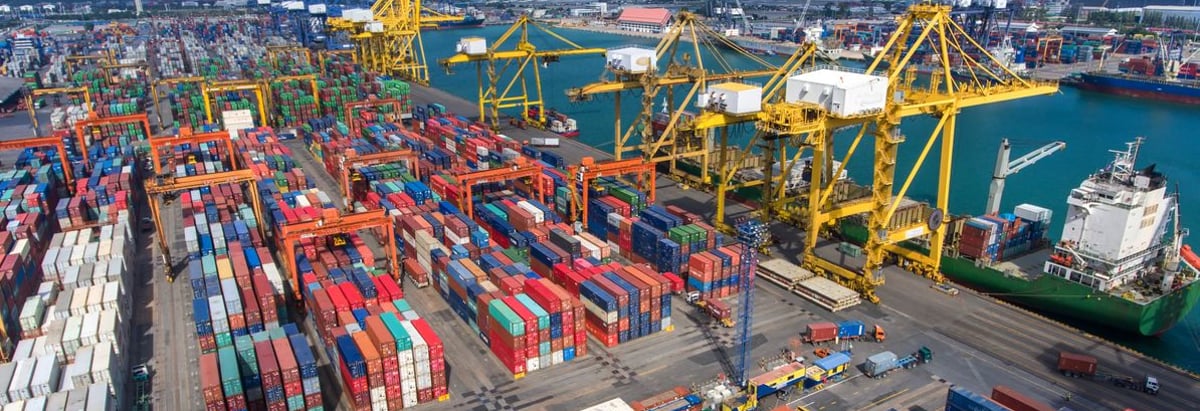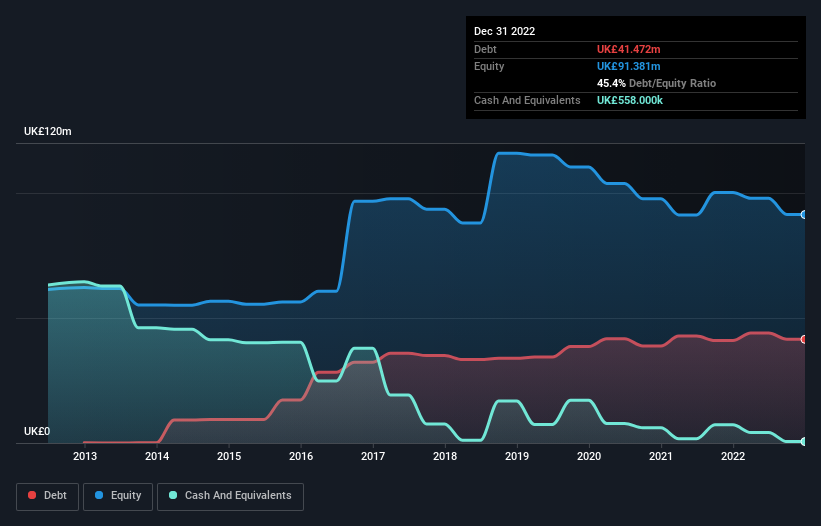- United Kingdom
- /
- Infrastructure
- /
- AIM:MPL
Is Mercantile Ports & Logistics (LON:MPL) Weighed On By Its Debt Load?

Some say volatility, rather than debt, is the best way to think about risk as an investor, but Warren Buffett famously said that 'Volatility is far from synonymous with risk.' It's only natural to consider a company's balance sheet when you examine how risky it is, since debt is often involved when a business collapses. Importantly, Mercantile Ports & Logistics Limited (LON:MPL) does carry debt. But should shareholders be worried about its use of debt?
Why Does Debt Bring Risk?
Generally speaking, debt only becomes a real problem when a company can't easily pay it off, either by raising capital or with its own cash flow. Ultimately, if the company can't fulfill its legal obligations to repay debt, shareholders could walk away with nothing. However, a more common (but still painful) scenario is that it has to raise new equity capital at a low price, thus permanently diluting shareholders. Of course, plenty of companies use debt to fund growth, without any negative consequences. When we think about a company's use of debt, we first look at cash and debt together.
View our latest analysis for Mercantile Ports & Logistics
What Is Mercantile Ports & Logistics's Debt?
As you can see below, Mercantile Ports & Logistics had UK£41.5m of debt, at December 2022, which is about the same as the year before. You can click the chart for greater detail. Net debt is about the same, since the it doesn't have much cash.

How Strong Is Mercantile Ports & Logistics' Balance Sheet?
According to the last reported balance sheet, Mercantile Ports & Logistics had liabilities of UK£12.1m due within 12 months, and liabilities of UK£40.8m due beyond 12 months. Offsetting this, it had UK£558.0k in cash and UK£14.1m in receivables that were due within 12 months. So its liabilities total UK£38.2m more than the combination of its cash and short-term receivables.
This deficit casts a shadow over the UK£11.1m company, like a colossus towering over mere mortals. So we'd watch its balance sheet closely, without a doubt. After all, Mercantile Ports & Logistics would likely require a major re-capitalisation if it had to pay its creditors today. When analysing debt levels, the balance sheet is the obvious place to start. But ultimately the future profitability of the business will decide if Mercantile Ports & Logistics can strengthen its balance sheet over time. So if you want to see what the professionals think, you might find this free report on analyst profit forecasts to be interesting.
Over 12 months, Mercantile Ports & Logistics reported revenue of UK£4.9m, which is a gain of 171%, although it did not report any earnings before interest and tax. So there's no doubt that shareholders are cheering for growth
Caveat Emptor
While we can certainly appreciate Mercantile Ports & Logistics's revenue growth, its earnings before interest and tax (EBIT) loss is not ideal. Its EBIT loss was a whopping UK£6.6m. Combining this information with the significant liabilities we already touched on makes us very hesitant about this stock, to say the least. Of course, it may be able to improve its situation with a bit of luck and good execution. Nevertheless, we would not bet on it given that it vaporized UK£1.5m in cash over the last twelve months, and it doesn't have much by way of liquid assets. So we think this stock is risky, like walking through a dirty dog park with a mask on. There's no doubt that we learn most about debt from the balance sheet. But ultimately, every company can contain risks that exist outside of the balance sheet. These risks can be hard to spot. Every company has them, and we've spotted 5 warning signs for Mercantile Ports & Logistics (of which 3 make us uncomfortable!) you should know about.
If you're interested in investing in businesses that can grow profits without the burden of debt, then check out this free list of growing businesses that have net cash on the balance sheet.
New: Manage All Your Stock Portfolios in One Place
We've created the ultimate portfolio companion for stock investors, and it's free.
• Connect an unlimited number of Portfolios and see your total in one currency
• Be alerted to new Warning Signs or Risks via email or mobile
• Track the Fair Value of your stocks
Have feedback on this article? Concerned about the content? Get in touch with us directly. Alternatively, email editorial-team (at) simplywallst.com.
This article by Simply Wall St is general in nature. We provide commentary based on historical data and analyst forecasts only using an unbiased methodology and our articles are not intended to be financial advice. It does not constitute a recommendation to buy or sell any stock, and does not take account of your objectives, or your financial situation. We aim to bring you long-term focused analysis driven by fundamental data. Note that our analysis may not factor in the latest price-sensitive company announcements or qualitative material. Simply Wall St has no position in any stocks mentioned.
About AIM:MPL
Mercantile Ports & Logistics
Develops, owns, and operates port and logistics facilities in India.
Moderate and slightly overvalued.


